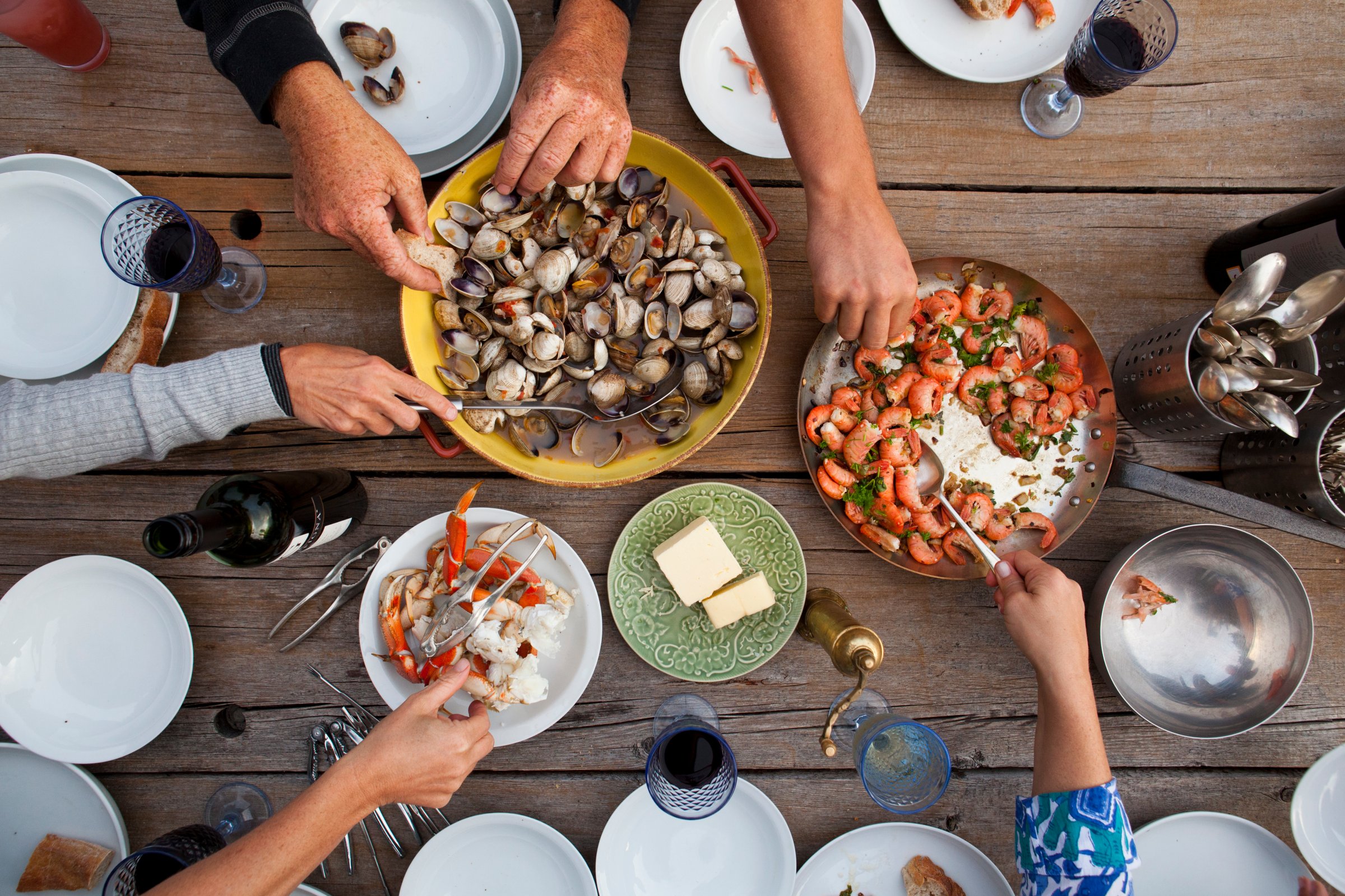
Bad news for anyone planning a lonely night of delivery for one: sharing a meal with others actually makes you a better person, suggests a new study in the journal Appetite.
In primitive times, food was delivered in bulk in the form of a whole animal—bison for four, anyone?—so it had to be shared by more than just a single family, the study notes. Since the very early days, food has been closely linked with cooperation. Learning how to distribute those portions fairly helped promote mortality and equality.
But now that you can order a bison burger built for one, is sharing food obsolete?
Researchers led by Charlotte De Backer of the University of Antwerp in Belgium surveyed 466 Belgian students, asking them how often they ate home-cooked family meals during childhood and their current prosocial behavior—or altruistic acts towards others. Those who had shared meals more frequently in childhood scored better for altruistic behaviors, particularly giving directions to strangers, offering their seats on public transportation, helping their friends move, and volunteering.
“I think our Western individualised societies can benefit from sharing food more than ever,” De Backer told TIME in an email. “Sharing food primes people to think about fairness (do I get as much as everyone else at the table?), authority (who is being served first?), and greed (Sometimes I cannot take as much as I would personally want.)”
There’s a difference between “sharing a meal” and sharing food, however. Simply grabbing dinner with friends and ordering your own entrees doesn’t have the same bonding effect. But when food is served “family style” or on a large platter meant to share, we seem to engage with our more prosocial selves.
Next time you meet friends for dinner, consider a restaurant with more shareable cuisine. “Asian countries have a strong tradition of food sharing,” De Backer says. “Even in Western countries most Asian restaurants will still serve food in platters to be shared with everyone seated around their table.”
And it’s never too early to teach kids that food shouldn’t be territorial. Any opportunity to instill it in children is important, De Backer says, and individualizing kid food is a lost opportunity.
Take the birthday party. “If you bring out one cake that needs to be cut, children will automatically be primed about fair behavior,” she says. Letting them evaluate if the pieces are equal and fair helps them practice altruistic behavior—while unwrapping a cupcake, De Backer says, gets them nowhere.
More Must-Reads from TIME
- Donald Trump Is TIME's 2024 Person of the Year
- Why We Chose Trump as Person of the Year
- Is Intermittent Fasting Good or Bad for You?
- The 100 Must-Read Books of 2024
- The 20 Best Christmas TV Episodes
- Column: If Optimism Feels Ridiculous Now, Try Hope
- The Future of Climate Action Is Trade Policy
- Merle Bombardieri Is Helping People Make the Baby Decision
Write to Mandy Oaklander at mandy.oaklander@time.com